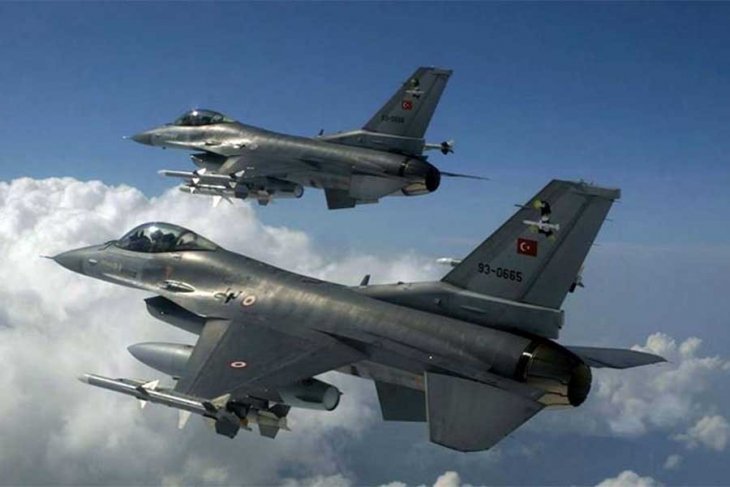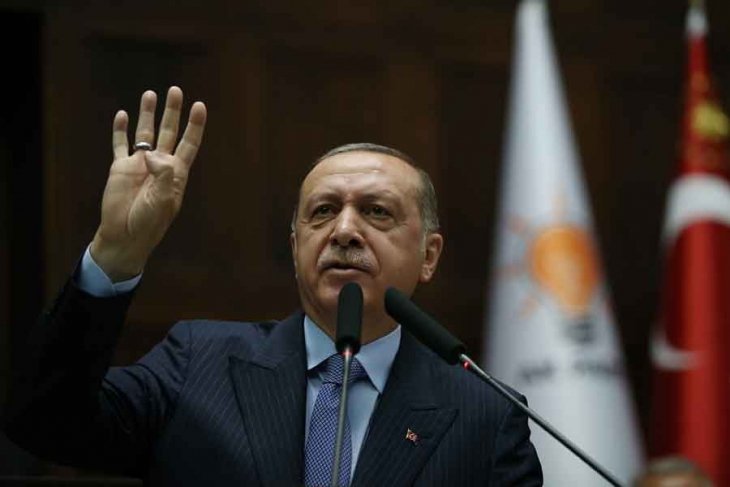All facts point to the same direction about the reasons for the championing of the Qandil operation by the government: Operation to win the elections!
In the background of the decision to have a raid election on 24 June were government calculations to save itself before both the nationalist wave generated by the Afrin operation was dispelled and before ramifications of the worsening economy completely reflected on people’s life. However, despite everything, it can be asserted that the consequences of the opposition attempts to derail government’s calculations and especially of the loss of value of the Turkish Lira, which has reflected already on employment and inflation figures, have diluted the chemistry of the government. One of the most evident results of this situation manifests itself as the relatively low turnout to Erdoğan’s election rallies and besides this, the dwindling enthusiasm in amongst the sections attending these rallies.
In other words, Erdoğan, despite the Martial Law and Decisions of Law which has furnished him with limitless powers, despite the mobilisation of all the opportunities of the state and moreover, despite the media monopoly wielded, is facing an election in which the possibility of loss has been this high for the first time. To be sure, this state of affairs has been causing much anxiety in amongst the government front (AKP as well as its minor ally MHP).
At precisely this juncture when questions about the kind of attempts the government will undertake to alleviate the worsening turn of events for itself were raised, the expected move came: a military operation against Qandil.
With Erdoğan in the forefront, the last few days saw the main agenda of all statements given by government spokespeople and the headlines of the government drumming media becoming comprised of the Qandil operation.
Before moving onto the assessment of this operation and its possible repercussions, the following should be asserted: the military operation against Qandil is one primarily directed at the public opinion in the home front rather than against the PKK camps. Just as it was the case in Afrin, there will be an attempt to reinvigorate the government’s spoiled chemistry through the declaration of ‘national mobilisation’ and the generation of the impression that once again a victory is won or is about to be won. With 2 weeks to go before the elections, the rendering of a military operation which has in fact already been going on for a while into a political tool cannot but have this as an explanation!
As for the operation against Qandil and its possible repercussions…
The Qandil region where PKK camps are located, stretching from the Turkish border into Iraqi Kurdistan, is an area 100 kilometres deep with 700 villages spread around it. The area comprises a considerably remote physical layout of mountains with altitudes over 2,000 metres and deep valleys extending in between them. The Turkish army, until now, undertook many an operation against Qandil through air strikes and on land. One of the better knowns of these was the “Sun Operation” undertaken in February 2008 at a time when General Yaşar Büyükanıt was the chief of General Staff. The Sun Operation had taken place as an air-supported land operation against the PKK’s Zap camp located in the Qandil region but was ended in its 8th day after no serious results were achieved with the withdrawal of land forces. What was actually notable was what Büyükanıt has said about the Qandil operation in 2009, a year after it to Mehmet Ali Birand’s 32nd Day programme:
MAB: Can the Turkish Armed Forces clear Qandil?
YB: Now Qandil is not just beyond our border, it is a 100 km in a straight line from Hakkari [a border city], it is a very bad landscape.
MAB: In other words, were you to send the entire Turkish Armed Forces, will it not be cleared?
YB: No, no the landscape is very bad, too long a distance. (http://t24.com.tr/haber/yasar-buyukanitin-tarihi-itiraflarinin-tam-metni,46517)
Probably no one can assert that Büyükanıt was not as enthusiastic as the current administration to “clear Qandil.”
According to what has been relayed by sources close to the government, the plans are to primarily conduct not a land operation but an air-borne one against Qandil. The use of a fleet more crowded than the 72 planes in the Afrin operation in this operation is being mentioned. However, the possibility of such a comprehensive air-borne operation against the Qandil region where 700 villages are located leading to both substantial civilian deaths as well as a new wave of migration is not at all negligible. As mentioned before, on the other hand, in actual fact operations against Qandil on land from the border regions and air strikes against PKK camps have been going on for a while now. The declaration of these operations overtly today, therefore, could only be accounted for in terms of the political needs of the government. Otherwise, such overt declarations of these operations do not have a military explanation. According to Abdulkadir Selvi, a Hürriyet columnist known for his ties with the government, the fact that this operation will be led by Metin Temel, the commander of the 2nd Army, whose epaulets Muharrem İnce, a presidential candidate, has promised “to rip off,” demonstrates the extent to which this operation is intertwined with government’s political calculations (as is known the images of Metin Temel vehemently applauding Erdoğan’s speech criticising İnce were carried over to the media).
Meanwhile, up for debate also is whether or not it will be possible to achieve any results against PKK, which knows the region quite well and which has substantial experience against such operations but more importantly whether or not the Kurdish question can be resolved through such operations.
In conclusion, all facts point to the same direction about the reasons for the championing of the Qandil operation by the government: the Qandil operation is the government’s operation to win the elections!
Article by Yusuf KARATAS

